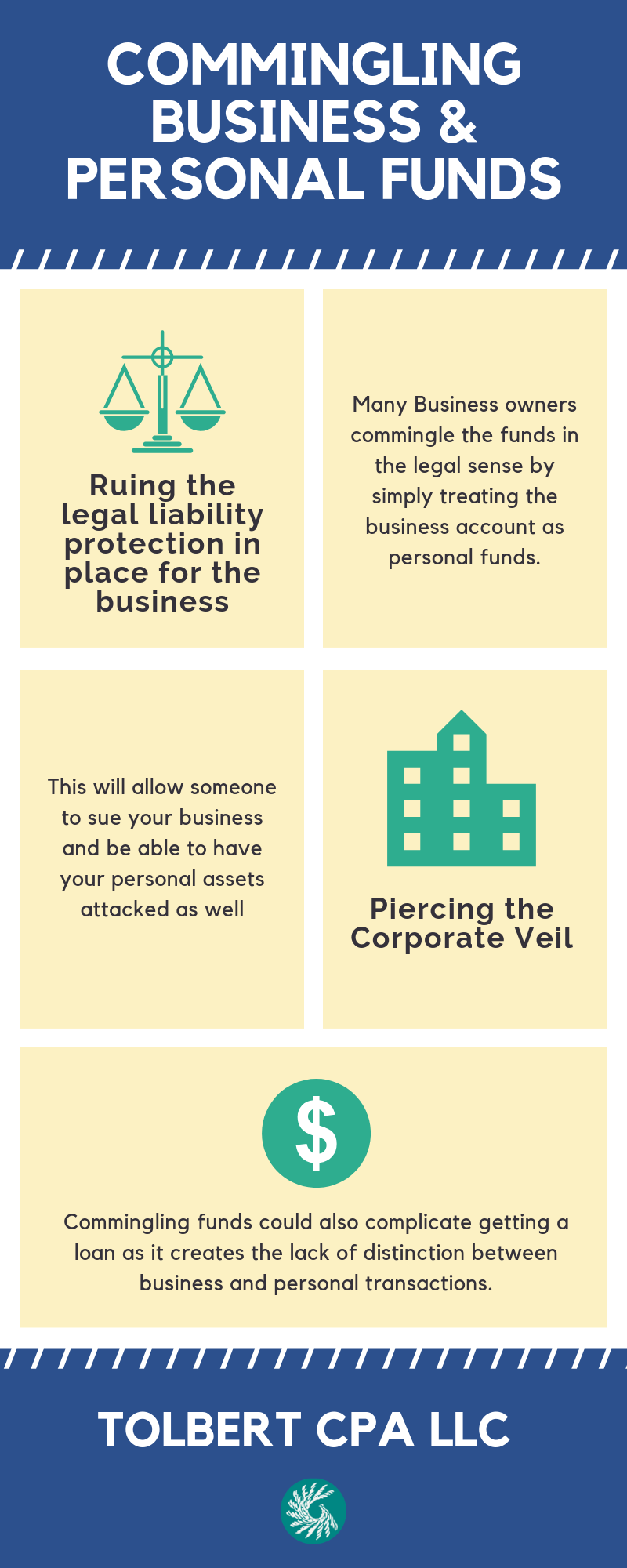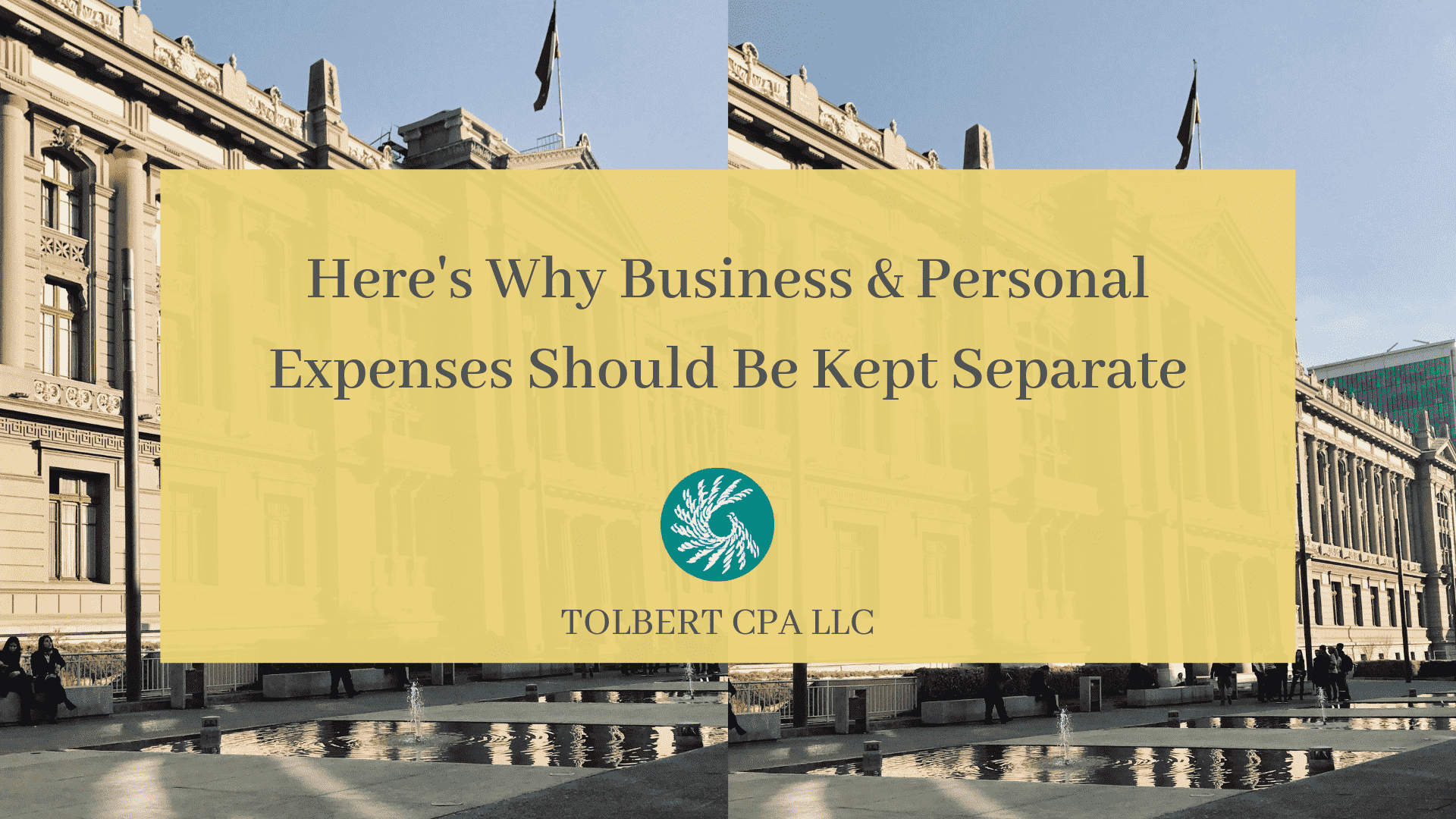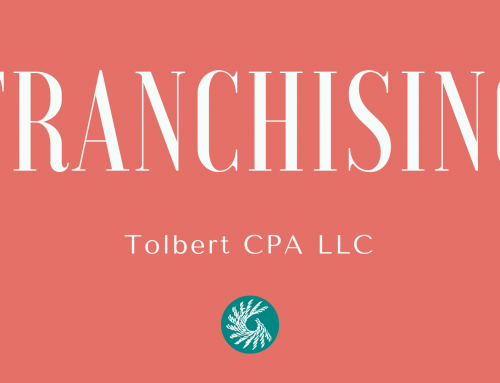Creating distinct identities between you and your business is a key reason to keep personal and business expenses separate. Tax rules require that the funds be treated separately. By having separate accounts, it also allows for easy tracking of the business expenses exclusively. This habit also make the books reliable for tax filing purposes and estimating taxes during the year.
Commingling Business & Personal Funds
Another important reason to keep these funds and transactions separate would be the very real risk of ruing the legal liability protection in place for the business.
Commingling literally is taking personal and business funds and mixing them. But many business owners commingle the funds in the legal sense by simply treating the business account as personal funds. This could include paying for personal expenses straight from the business accounts; hitting the ATM for cash that will be used for personal reasons; mixing the use of a credit card for both business and personal reasons; or transferring money between business and personal accounts without clear records of the transactions.
By commingling your funds, you could be at risk of losing any liability protection better known as “piercing the corporate veil.” This would allow someone to sue your business and be able to have your personal assets attacked as well. Also, because the practice is outside the tax rules, there could well be additional scrutiny during an IRS audit that could include both your personal and business accounts.
Commingling funds could also complicate getting a loan as it creates the lack of distinction between business and personal transactions. So, the lender could have concerns about giving a business loan or a personal loan as they can be sure of the funds for payment or how the funds from the loan would be used.

How To Avoid Commingling
Always keep your business and personal funds and expenses separate. Have exclusively a business bank account and credit card. Use a business checking account to pay for expenses such as inventory, employees, any assets, etc. while making sure to not pay any personal expense with your business bank account and vice versa.
Keeping and understanding your accounting records will be beneficial to you in the long run. Keeping funds and expenses separate will help diminish the possibility of legal or tax problems in that area.
As always, having time to focus on what matters most- running a profitable business; is no easy task. If you find yourself commingling and need help with cash flow management give us a call and we’ll work with you to help you make sure your business runs smoothly. Plus, learn more about our Business Compass Program to take control of your small business financials and have them start working for you.
Visit our Entrepreneur’s Guide to Accounting for more valuable articles like this one to help you build the right foundation for your business financials.






[…] Anything you buy to run the business […]
[…] important for your accountant to do your taxes correctly. If you use a single account for each you threat commingling funds and not precisely tracking deductible bills. For this cause, we suggest on the lookout at a […]
[…] It is important for your accountant to do your taxes correctly. If you use one account for both you risk commingling funds and not accurately tracking deductible expenses. For this reason, we recommend looking at a […]
[…] your accountant to do your taxes the right way. If you use a person account for both equally you risk commingling resources and not correctly monitoring deductible costs. For this purpose, we suggest seeking at a small […]
[…] for your accountant to do your taxes accurately. If you use a single account for the two you hazard commingling funds and not correctly tracking deductible fees. For this rationale, we suggest wanting at a business […]
One of the most important reasons to keep personal and business costs separate is to create distinct identities for yourself and your company. The funds must be treated separately under the law. Having separate accounts also makes it easier to keep track of just business costs. If you want to know more you can also check https://malkounassociates.com.au/. Thanks